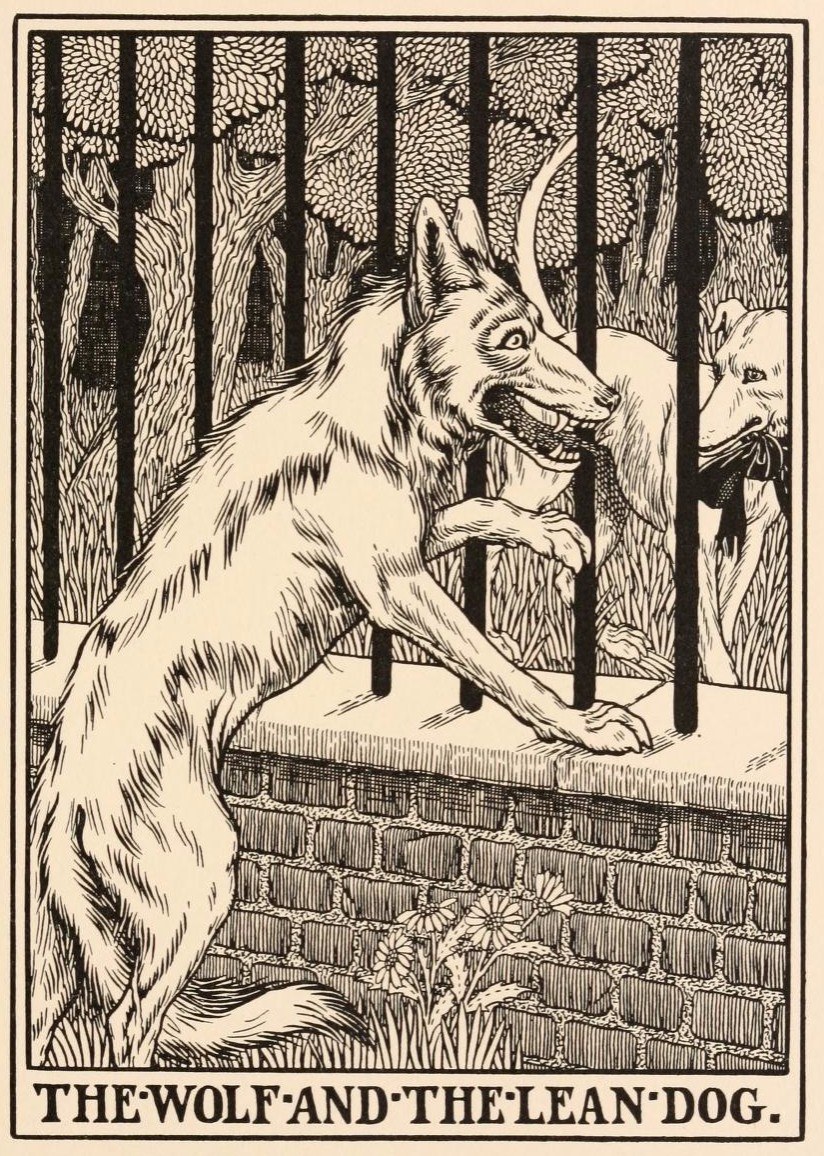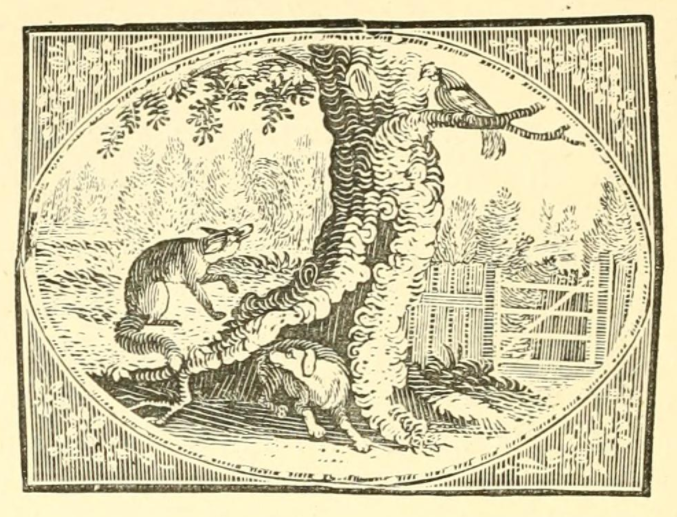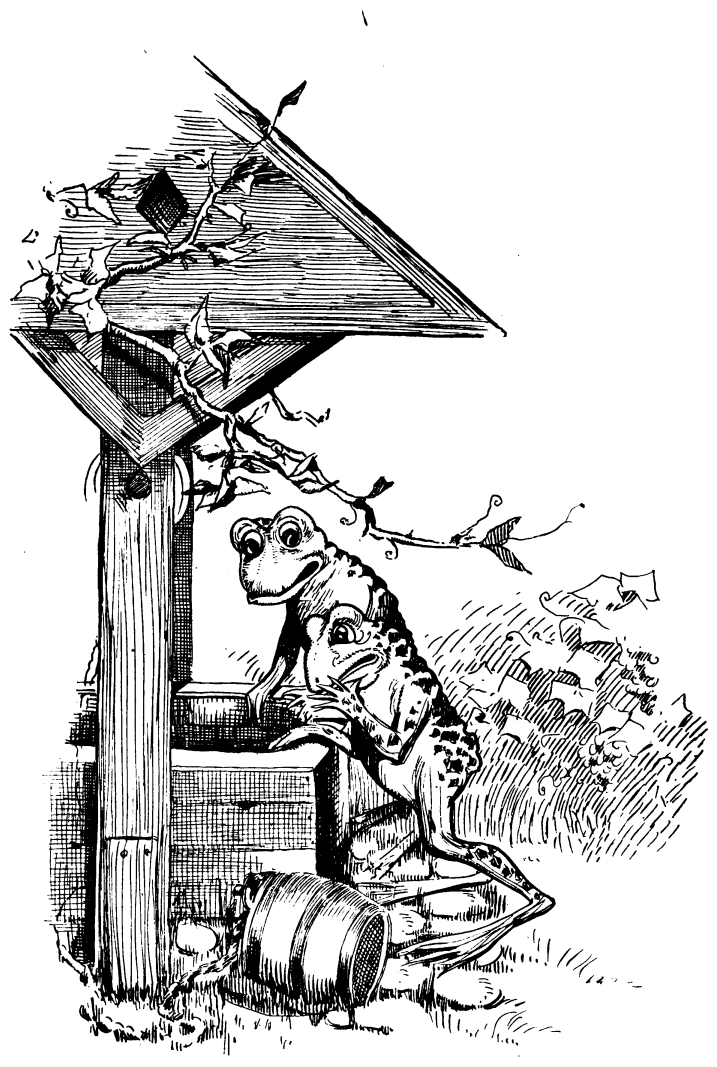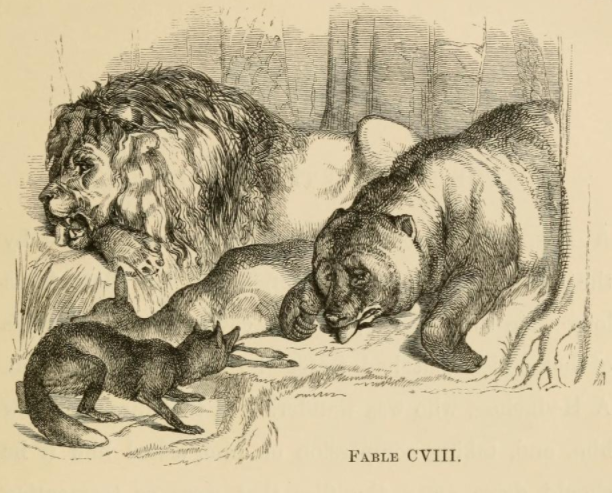191. Of a Physician and a Dead Man
A certain physician, who had attended a sick man, who a little after died, said to those who bore the funeral, if that man had abstained from wine and had used clysters, he would not have been dead. A certain one of those who were present, says to the physician, not unwittily, "So ho, physician, those counsels were to be told, when they were able to profit, not now, when they avail nothing.
Moral. The fable signifies that when cuonsel does not profit, to give it at that time is truly to play upon a friend.
192. Of a Dog and a Wolf
When a dog slept before the hall, a wolf coming upon him, presently took him, and when he was willing to slay him, the dog besought him that he would not kill him, saying, "So ho, my wolf, now be unwilling to kill me, for as you see I am thin, lean, and lsnder, btu my master is about to make a wedding when, if you will wait a little, I eating daintily and become fatter, shall be more advantageous to thee. The wolf having faith in these words dismissed the dog. After a few days the wolf coming, when he found the dog sleeping at home, standing before the hall, asks the dog, that he would perform his promises to him. The do gsays, "Hark ye, wolf, if thou hadst taken me before the hall, thou wouldest not have expected the wedding in vain."
Moral. This fable shows that a wise man, when once he hath avoided a danger, continually takes care for the future.

193. Of a Dog and a Cock
A dog and a cock companions made a journey, but evening coming on, the cock slept among the branches of a tree, but the dog at the root. When the cock, as he is wont, crowed in the night, a fox heard him, runs to him, and standing below asked that he would come down to him because he desired to embrace an animal so commendable for song, but, when he had said that first he should wake the porter sleeping at the root that he might come down when he had opened; he asking that he would call him, the dog leaping out, tore to pieces the fox.
Moral. The fable signifies that prudent men through craft send enemies more powerful than themselves to the more brave.

194. Of the Frogs
Two frogs were fed in a marsh, but in summer, the marsh being dried up, they sought another, but whey found a deep well which, being seen, one said to the other, "So ho, you, let us descend into this well." The other answering says, "If the water should dry up here, how shall we get up?"
Moral. The fable declares that no things are to be done inconsiderately.

195. Of a Lion and a Bear
A lion and a bear, when they had taken ag reat fawn, fought about him and, wounded grievously by one another, they lay down tired. A fox, seeing them laid prostrate, and the fawn lying in the middle, snatched him, and ran away. They saw him, but because they could not rise, they said, "Alas! Wretched us, because we have laboured for the fox."
Moral. The fable signifies that whilst some labour, others enjoy the prey.

No comments:
Post a Comment
Comments are limited to Google accounts. You can also email me at laurakgibbs@gmail.com or find me at Twitter, @OnlineCrsLady.